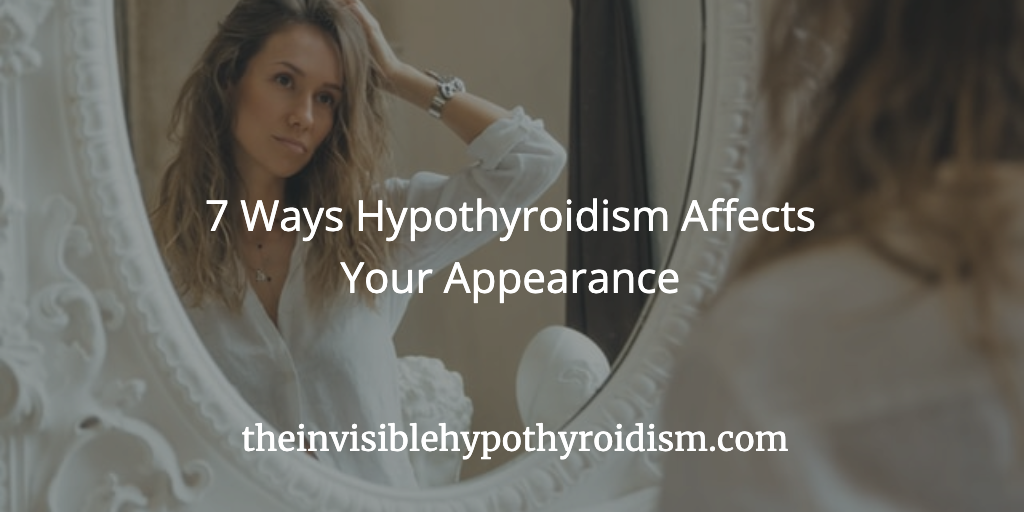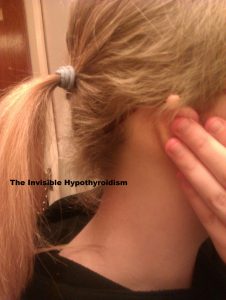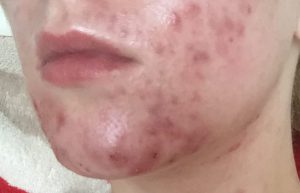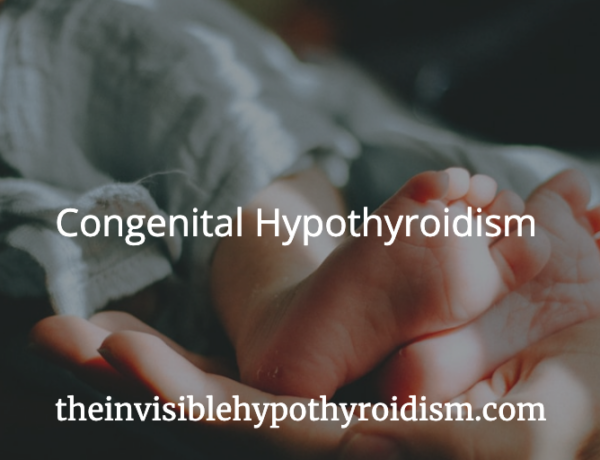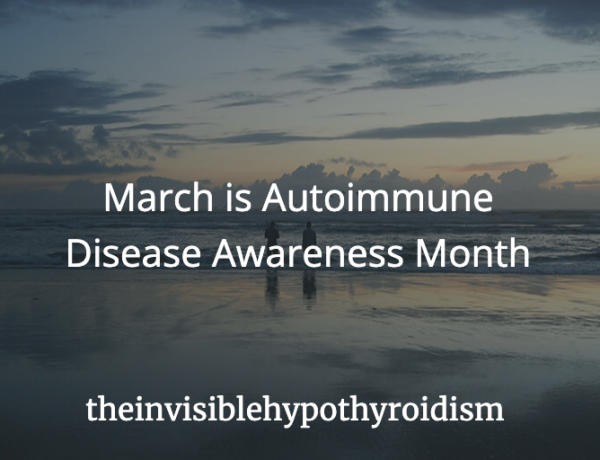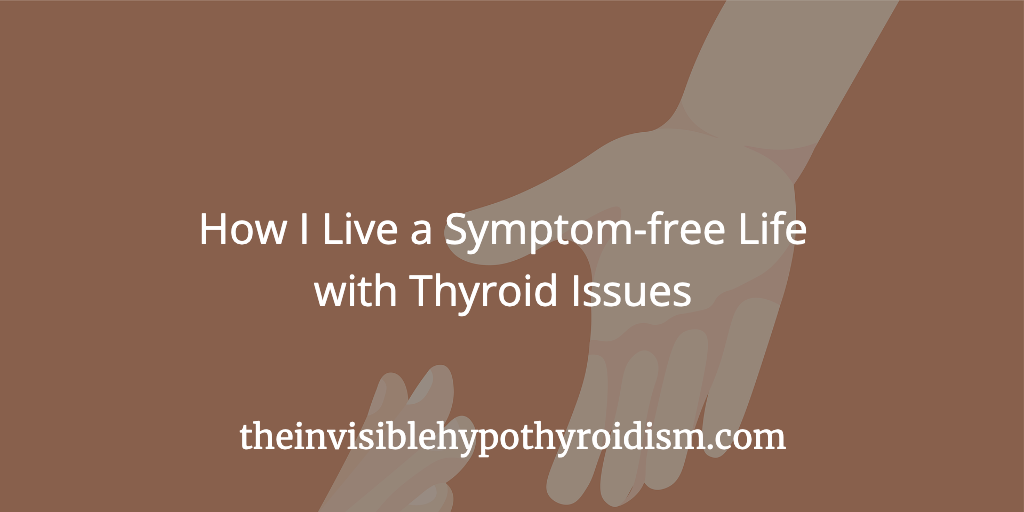Symptoms of hypothyroidism are far-reaching. A lack of thyroid hormone can impact you from the top of your head to the tip of your toes.
Symptoms of fatigue, muscle aches, brain fog and acid reflux demonstrate how much of the body can be affected when thyroid hormones are low, but many thyroid patients’ self-esteem is knocked more so by the effects it can have on their appearance.
When we feel low in self-esteem, it can impact how we perform in our work lives, whether we feel up to maintaining a social life, and even whether we feel like being sexually intimate with others.
After all, a low libido is another symptom of hypothyroidism and as well as it being driven mainly by the lack of thyroid hormone itself, you are less likely to feel ‘in the mood’ if you’re self conscious about your appearance or have lost some self-confidence due to not feeling like yourself anymore.
1. Weight Fluctuations
The main purpose of thyroid hormone is the running of the metabolism.
Therefore, people with hypothyroidism often have a slow metabolism, with symptoms such as cold intolerance (from the lack of heat made) and extreme tiredness and weight gain (from the lack of calories burned to make energy).
Depending on how well managed and stable the condition is, weight fluctuations can occur, leading to sudden weight gain or weight loss, particularly if thyroid hormone levels change rather suddenly, requiring a thyroid medication dosage increase or decrease. Face puffiness (moon face) may also be seen with this.
Having Hashimoto’s can cause hormone levels to ‘swing’ up and down quickly, due to the ongoing destruction of thyroid tissue and this being released into the bloodstream in waves. Calming this down by lowering thyroid antibodies can help.
Medical professionals say that the weight gain from hypothyroidism is usually between 10 and 30 pounds, thinking that the body adjusts for the slower metabolism after while. This is very much disputed, though, as many patients carry on gaining, despite embarking on diets and over exercising in a bid to slow it down.
2. Dry hair
Dry, brittle hair is another common sign of hypothyroidism. This is thought to be due to how hypothyroidism may affect the oil glands on the scalp, which keep hair shiny and healthy when functioning properly, but may become more ‘dried out’ with hypothyroidism.
As well as aiming for optimal thyroid hormone levels via your medication, you may wish to explore hair products which add moisture back in to the hair (such as hair oils), as well as ensuring you’re drinking plenty of water and consuming a high quality diet.
3. Hair Loss
Hair loss of the head, eyebrows, eyelashes and even pubic hair can result from hypothyroidism. Premature balding is also seen in men with hypothyroidism.
Thyroid hormone is required for healthy hair to grow and when this is lacking, it may fail to grow at its usual rate as well as fall out.
As well as thyroid hormone levels being behind a lot of hair loss in thyroid patients, exploring ferritin / iron levels is valuable too, since low iron levels often go hand in hand with a hypothyroidism diagnosis and anaemia is another very common cause of hair loss (and often, easily corrected, too).
Read more on the causes and solutions for thyroid hair loss here.
Losing hair can be one of the most upsetting of thyroid symptoms and cause a huge knock to self-confidence.
It is worth knowing that UK laboratory service Medichecks offer a Hair Loss blood test which checks many of the common causes for hair loss.
4. Eczema / Dry skin
Dry skin is yet another common symptom many of us have before finally being diagnosed with hypothyroidism.
Dry skin / eczema can appear anywhere on the body and range from mild to severe. Those with this symptom may not only be conscious of how it looks, but uncomfortable with how it feels too. Dry skin can be painful, especially if it is cracked, bleeding and particularly delicate.
Topical treatments for eczema, as well as treating the hypothyroidism and analysing your diet can all help here.
5. Acne
Acne is less common than some of the others in this list, but still affects more people than we may realise.
Hypothyroidism often coexists with adrenal dysfunction, poor gut health and sex hormone imbalances. This cocktail can lead to painful, cystic acne. Adults who experience acne may feel embarrassed and desperate to find ways to conceal it and cure it. However, there is so much we still do not know about acne.
Addressing possible sex hormone imbalances (such as “oestrogen dominance” or PCOS), low vitamin levels, adrenal issues, diet and gut health may help and, in some cases, cure acne. But for many others, they embark on various protocols, product regimens and prescribed treatments from dermatologists and still find little to no relief.
What we do see however, is an increase in people with acne who also have hormonal conditions such as thyroid disease.
6. Splitting Nails
Weak, splitting nails which break easily can also knock your confidence, especially if you used to have long, healthy and shiny nails you were proud of. For some, their nails are an expression of their femininity or creativity, too.
I know I feel the difference between healthy, shiny, long nails and short, broken and cracked ones. I’m suddenly very conscious about paying for my groceries in the shop, passing a drink to someone, or anything else that may draw attention to my hands.
Pair the damaged nails with dry, cracked skin on my hands and I feel really self conscious.
Read about improving nail health here.
7. Cracked Feet
Feet that are very dry, cracked and split on the heels can also be caused by hypothyroidism.
As discussed previously, hypothyroidism can lead to dry, tight skin and the feet may be even more susceptible to this given how much we walk on them and use them day to day. We also may not think to apply a moisturiser to them as much as we do our hands.
Just like the other suggestions in this post, optimising thyroid levels, combined with topical treatments can help.

